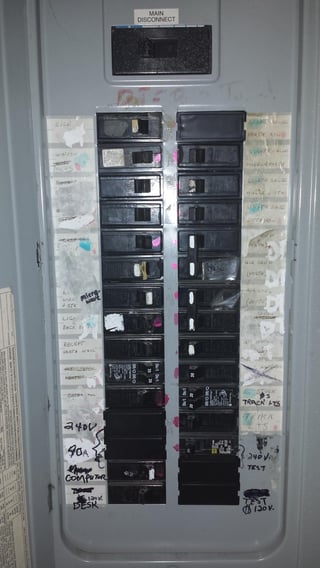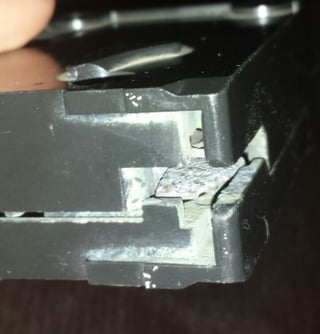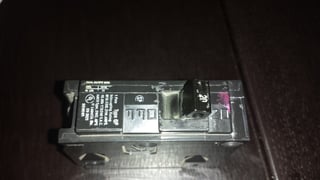I'm leasing a commercial space and I have concerns about the breakers and electrical space. All the lights in the space are switched by the breakers, so the breaker box gets visited at least twice a day. The breaker box is located indoors. To my knowledge, the breakers are not overloaded (e.g. 10A on a 20A breaker). I have heard crackling noises from the breaker box, and have called the landlord to have it fixed. (The landlord is responsible for everything but the light bulbs).
One breaker was replaced and relocated. The faulty breaker had signs of lots of arcing at the contacts with the bus bar, and the contacts looked corroded. Replacing the breaker didn't eliminate the crackling sound, and the bus bar contact was corroded as well. The breaker was relocated to an open slot. I could still hear faint crackling, but the service person could not.
I will admit that the sound is faint, and I can practically only notice it with my ear 3-4 inches away from the breaker box, and I can't localize the sound to a specific breaker. I've noticed some intermittent minor flickering on the lights as well that let me identify the crackling breaker. I would like it to be fixed, but I'm concerned that I don't have enough sufficient evidence to convince people there is a problem.
I suppose this means that I have two questions:
Should I be worrying about these symptoms? (am I being paranoid?)
What evidence could I look for that is more obvious or conclusive than the subtle indicators that I have observed?
EDIT: Image of the breaker after repair. The replaced breaker was originally in the top-right slot. After it was replaced, it was then moved to the third from the bottom slot (marked "240V. Test").
Images of the replaced breaker. In normal light, the contacts are heavily oxidized (black). There were spark marks on the case in-line with the contacts, but they were wiped off.



